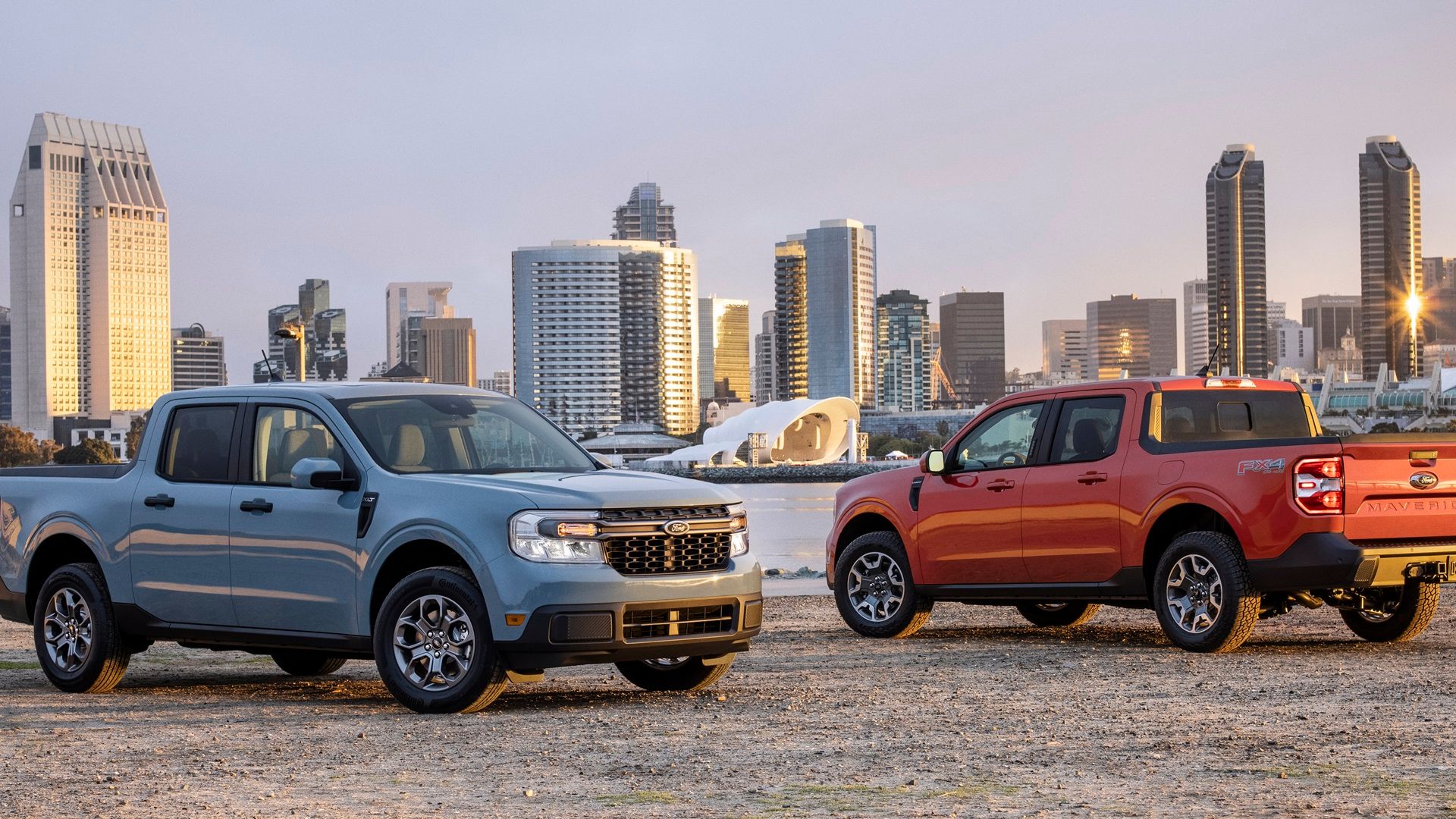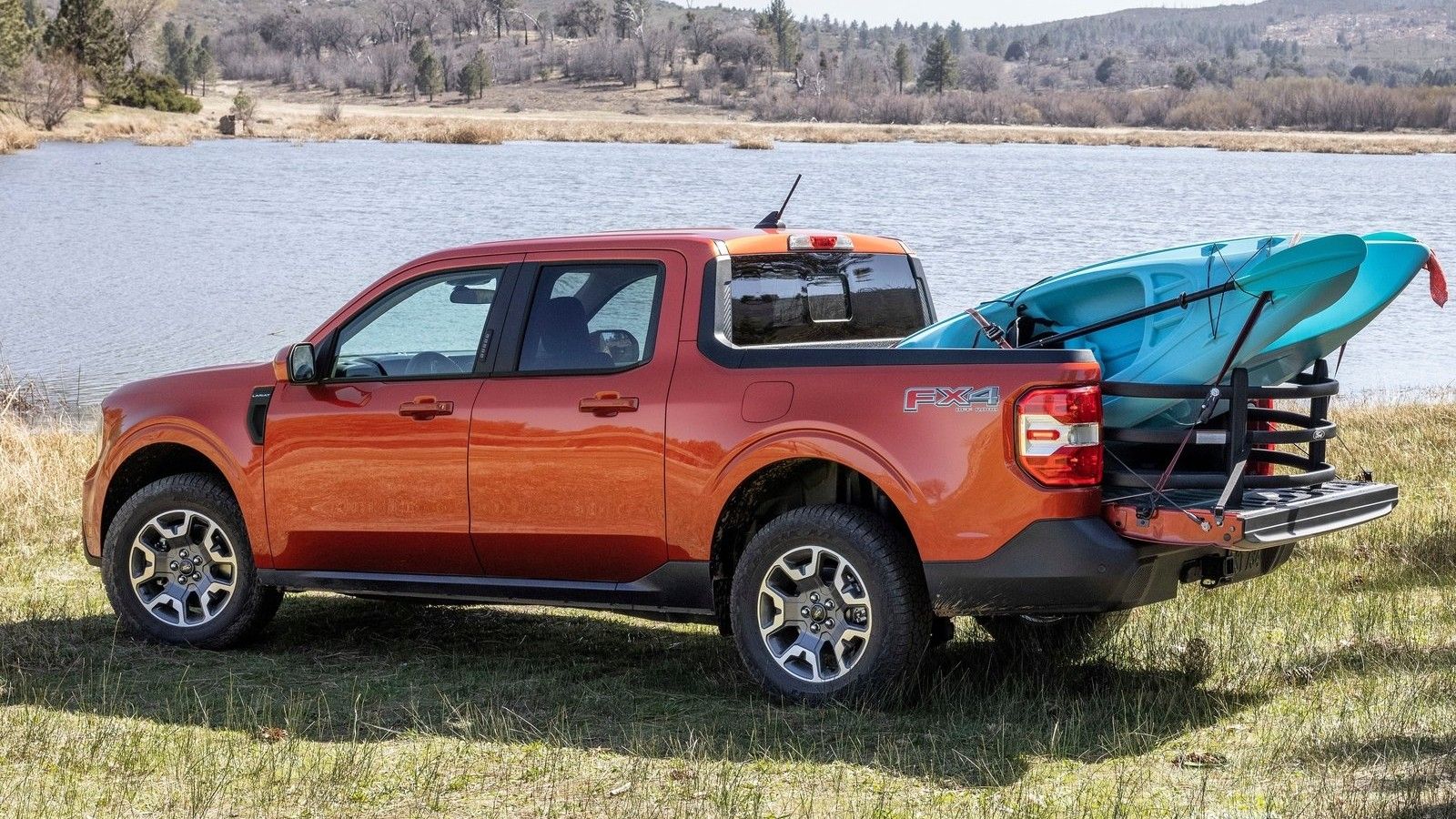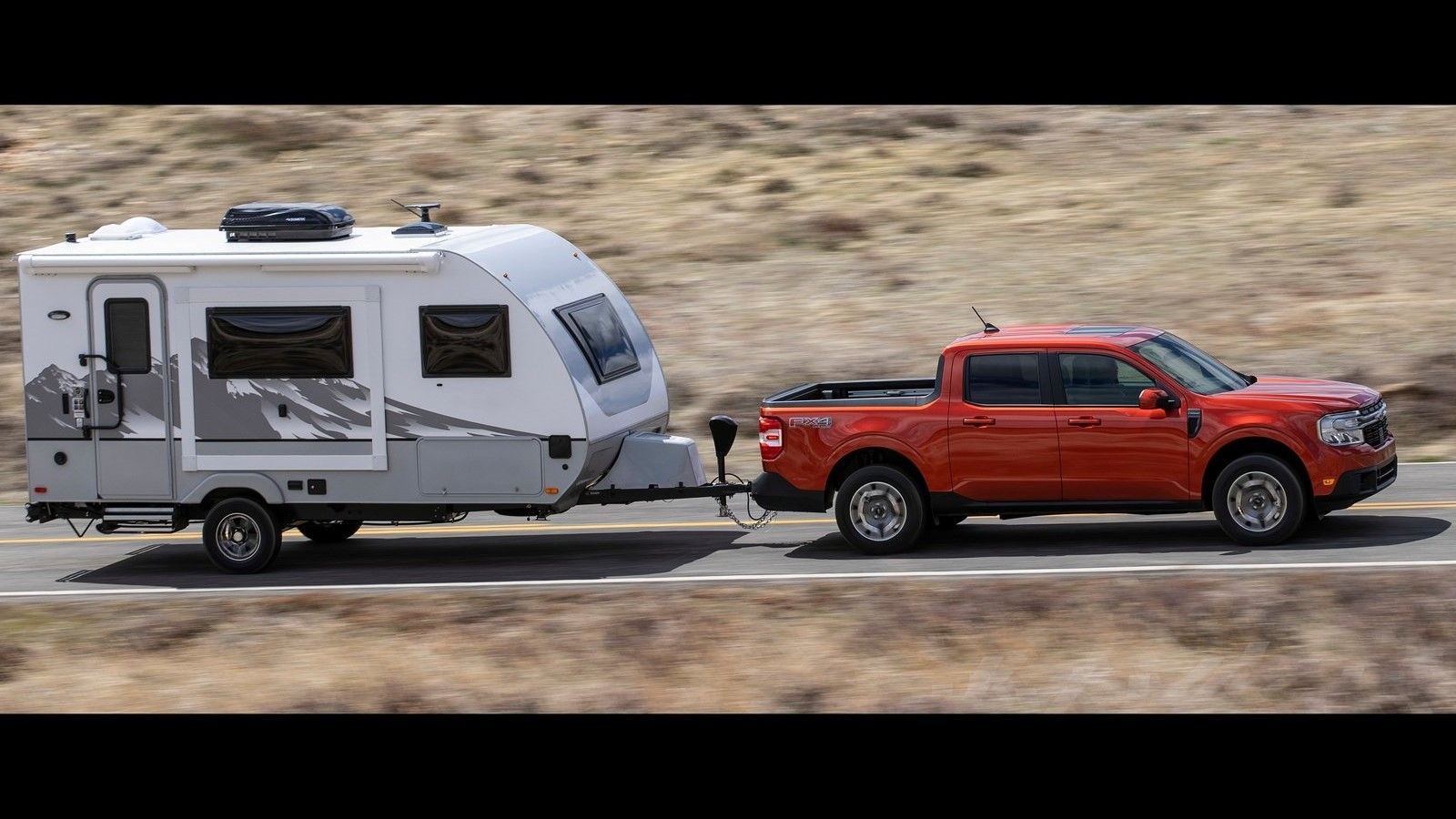Hybrids! Some love them, some hate them, and yet, nobody can deny that they’re a pretty good option amid today’s market conditions. This is especially true for the Ford Maverick FHEV, which has considerably grown as a popular choice over the last few years. On October 4, Ford revealed that the hybrid variant accounted for 56.6 percent of all Mavericks sold. This success is proof that it is rapidly sticking out as one of the smartest choices in the pickup truck universe. For those who are not yet attracted to electric trucks, the Maverick hybrid is the cheapest, and most efficient alternative available.
More than just a low price tag, the unibody truck is a perfect combination of practicality and trailblazing abilities, providing enough tech and comfort in the process to keep you satisfied with your $26,495 purchase. As the industry rapidly shifts to EVs, we remain glad that Ford is keeping the hybrid Maverick in its panoply. Hence, we’ve decided to detail why it is a perfect asset for the manufacturer, and an ideal pick for consumers.
The information in this article was compiled from various reputable sources, including Consumer Reports, Car And Driver, CleanTechnica, Ford, and The Drive.
It Is Tailor-Made To Be A Crowd-Favorite
While the partly-electric Maverick is known for its low MSRP, its upcoming version will be a slight departure from the norm. Contrary to tradition, the hybrid powertrain will not come as standard on the 2024 Ford Maverick. Instead, it is the 2.0-liter EcoBoost that will now take over as the introductory trim level for 2024. The hybrid option, on the other hand, will cost an extra $1500. This effectively brings the price of the 2.5-liter hybrid option to a minimum of $26,495.
Despite the price-tag increase, the hybrid remains a solid bargain, especially if you’re not willing to spend $39,900 on the Ram 1500 e-Torque, and the $59 475 Toyota Tundra Hybrid. On top of being considerably pricier, these two alternatives are notably less efficient, which naturally raises the cost of ownership, making the Maverick even more affordable in comparison. The latter offers 24–37 combined mpg, while the e-Torque and the Tundra Hybrid offer 17–22 mpg and 19–22 mpg in comparison.
Thus, by offering the Maverick hybrid at a competitively low price, and making it a cost-saving, consumer-friendly option, Ford is essentially securing a strategic place in the market. On top of being a cheaper counterpart to the pricier electric trucks that have yet to catch up in terms of value and off-roading performance, the hybrid Maverick is also the most alluring choice on the budget-friendly end of the spectrum.
The Hybrid Powertrain Provides Unparalleled Efficiency
2023 Ford Maverick Hybrid Performance Specs
|
Engine |
2.5-liter FHEV |
|
Horsepower |
191 horses |
|
Torque |
155 pound-feet |
|
0-60mph |
7.7 seconds |
|
Combined Range |
500 miles |
|
Towing Capacity |
2,000 pounds |
|
Payload Capacity |
1,500 pounds |
(Specs sourced from Ford)
On top of being modestly priced, the Maverick Hybrid offers a pretty decent bang for your buck in terms of overall comfort and quality value. Although far from being a chef d’oeuvre, the styling is sleek enough for a vehicle within the sub-30k price range. The imposing fascia is enhanced by a large grille and square-shaped headlights that help give it the presence of a badass off-roader. Under the skin, the 2.5-liter Atkinson-cycle petrol engine works in perfect cohesion with the electric motor and battery to produce 191 horsepower and 155 pound-feet of torque.
Although these specs only translate into a 0-60 mph time of 7.1 seconds, the Maverick still makes up for it in its own way. As previously mentioned, it is an ideal alternative to electric trucks, which leave a lot to be desired in terms of range and efficiency. On top of offering up to 40 miles per gallon in the city and 33 miles per gallon on the highway, it also provides up to 500 miles of range on a single tank, which has yet to be TRULY equaled by even the best truck in the EV industry, or any other realm.
You can thus go on about your lengthy trip to nature’s unfavorable terrains, untethered by range anxiety. In addition, the Maverick still boasts a 1500-pound payload capacity, coupled with 2000 pounds of towing capacity, despite the hybrid powertrain which is known to impact such numbers.
The Tech Features Are The Cherry On Top
For a base price, customers are also treated to an 8-inch infotainment screen with six speakers, Apple CarPlay Android Auto. And yet, the most innovative aspect of the Maverick is its customizable flex bed, which takes practicality to the next level. The Maverick’s Flexbed System allows you to configure your bed according to your needs through a multitude of features such as a bed slot rail system, a multi-position tailgate, and a bed extender which increases the overall length from 4.5 feet to 6.0 feet.
The system is also supplied with six standard bed tiedowns, a 12-volt outlet, and functional 2×4 and 2×6 pockets. To seal the deal, the Maverick also comes with a decent amount of safety features, including:
- Pre-Collision Assist
- Automatic Emergency Breaking
- Blind Spot Information System (BLIS)
- Auto High-beams
- Lane Centering
- Adaptive Cruise
Not a bad value for such a decently-priced truck!
Electric Trucks Can’t Hold A Candle
Perhaps the best argument for hybrid pickups is that they are a best-of-both world solution. While smaller EVs (including SUVs and sports cars) have been able to win the culture war due to their superior performance and glamorous appeal, electric trucks still have some work to do. Consumer Reports has already established how even the most efficient offerings in the category – namely the Ford F-150 Lightning and the Rivian R1T– can lose more than two thirds of their overall range when towing. This isn’t really what you’re looking for when you purchase a big vehicle supposedly built for heavy-duty activities.
Furthermore, lithium-ion batteries, which power most EVs today, are well known for being vulnerable to extreme weather conditions.This, again, works to the detriment of electric pickup trucks, which are expected to be as reliable as their ICE predecessors during off-roading escapades, due to their heavy MSRPs. At the same time, electric trucks do happen to cost less in overall maintenance costs and fueling fees than both gas-powered and hybrid trucks. But you don’t really buy a truck for its efficiency, do you?
No, you buy one because you want a terrain-challenging badass that can do all the things a regular vehicle can do. If you’re looking to spend less on fueling, but also want to get the good ol’trucking experience, then you’re better off opting for a cheap, yet effective hybrid pickup like the Ford Maverick.
The Maverick Is One Of The Best Hybrid Offerings Currently
When analyzing the difference between electric trucks and their “fossil-fueled” counterpart, The Drive came to a rather nuanced, and less-than-flattering conclusion that undermined all preconceptions. In truth, e-pickups can be even more detrimental to the environment than a smaller gas-car, due to the polluting nature of their manufacturing process. At the same time, they’re also better for the planet than their ICE equivalents, but the discrepancy isn’t as glaring in that regard as you might think.
Because of their more gargantuan frames, electric pickup trucks need heftier battery packs to cover the same distance as a smaller EV. The manufacturing process of those heavy battery packs is far from being eco-friendly either, and it takes years for an electric truck to make up for it. In their article, the Drive mentioned that by the time an EV truck had saved enough energy to compensate for the extra emissions resulting from the production of their sizable batteries, a considerable part of the e-truck’s lifespan had already gone by.
It is therefore hard to make a case for electric pickup trucks, when their unsatisfying ecological advantages inferior towing capacities, and all-around off-roading abilities fail to make up for their higher price-tags. Conversely, hybrid trucks are a cheaper, more favorable middle ground between their gas-guzzling counterparts, and their alternatives in the e-segment, which are still missing a few key qualities.



